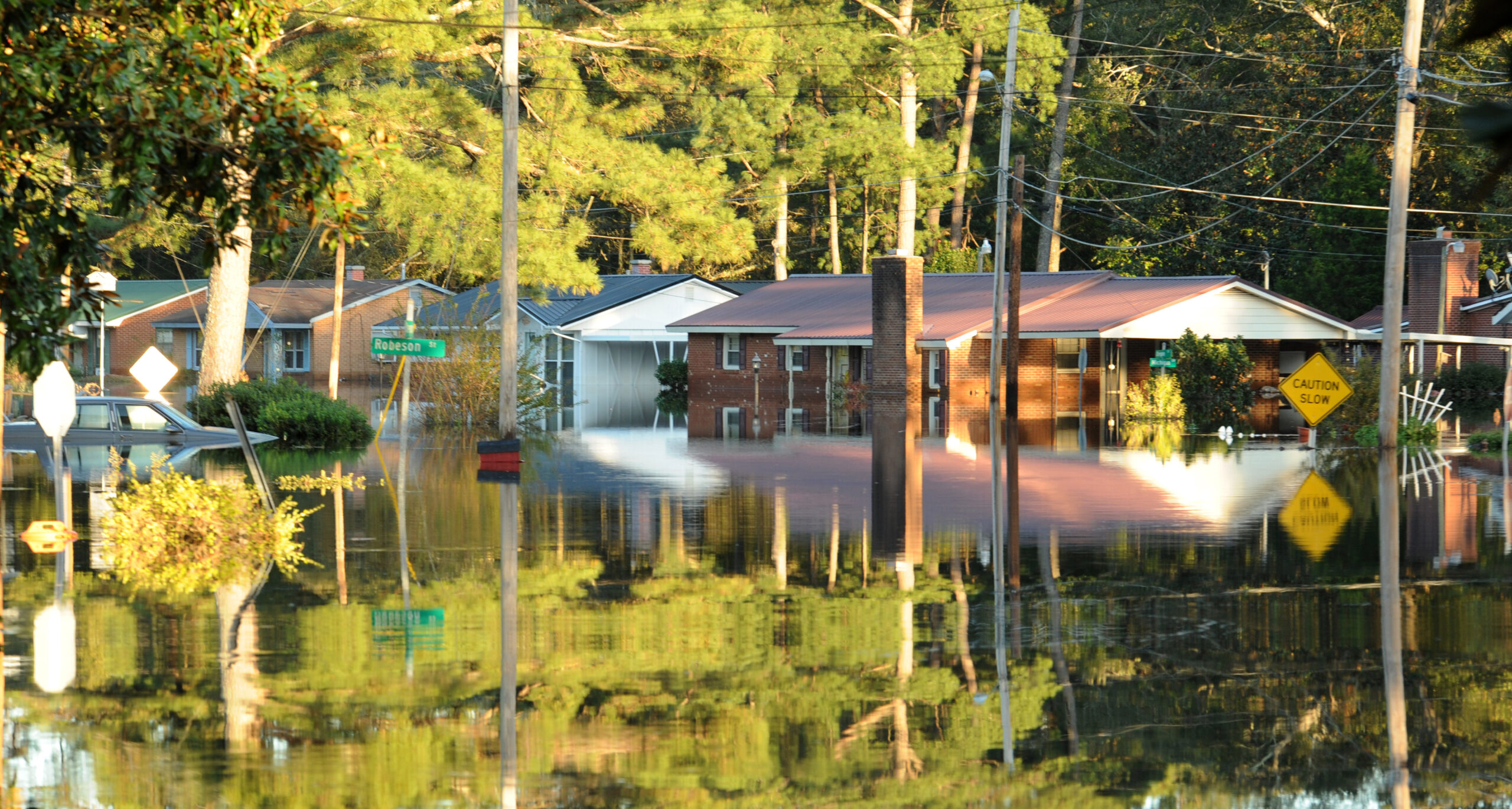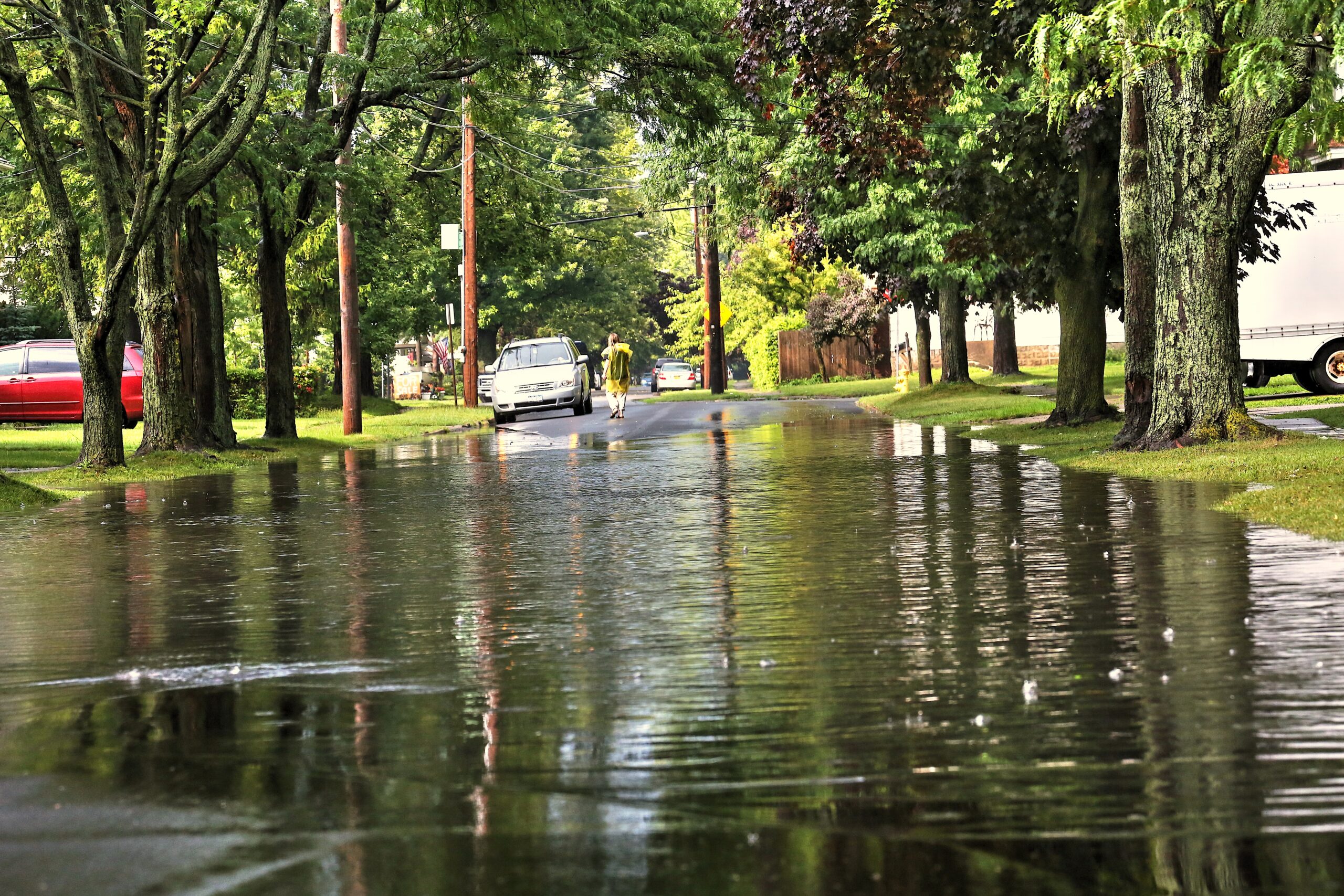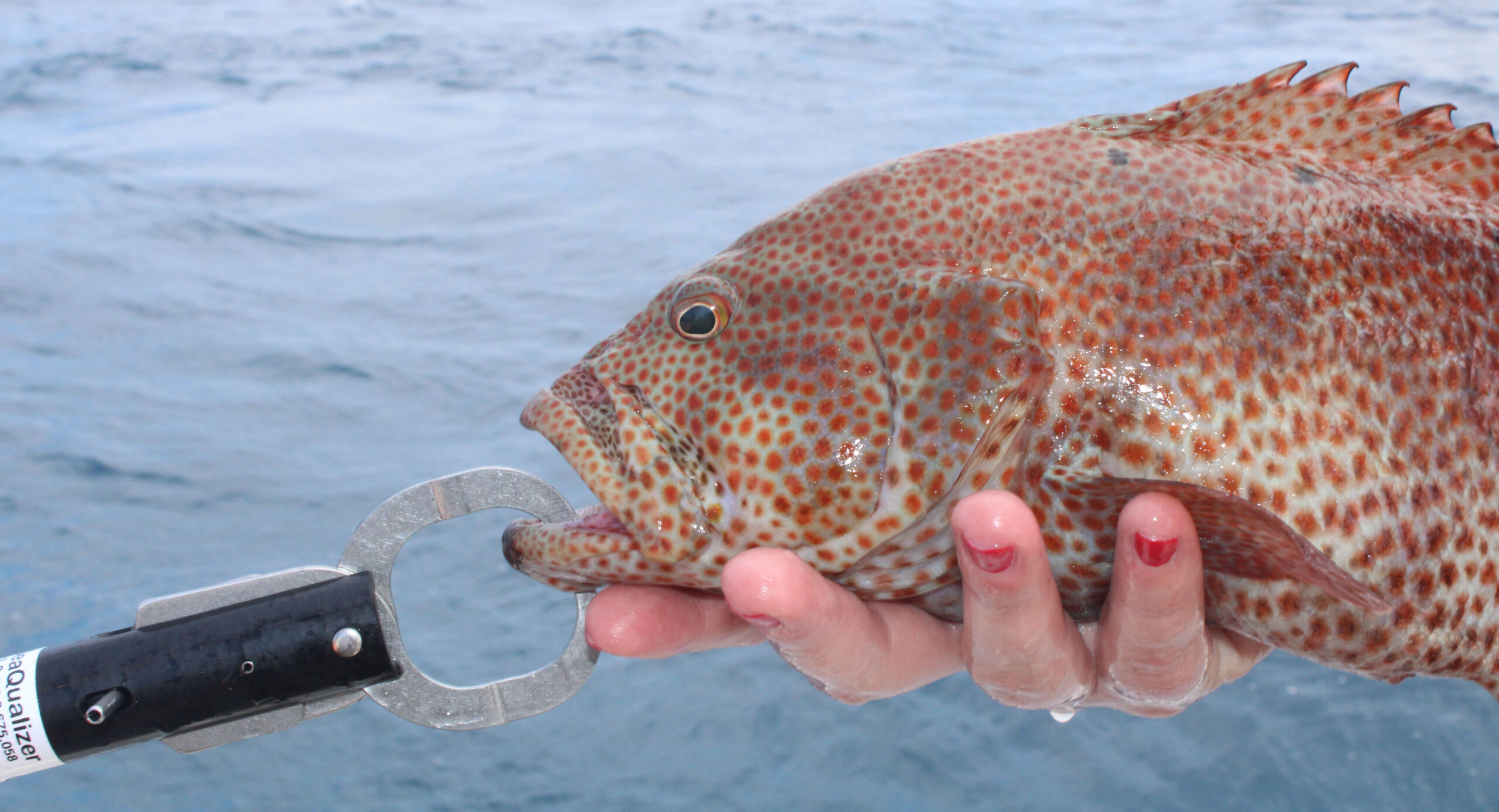Between a River and a Swamp: All That Water Has to Go Somewhere
After flooding from hurricanes Matthew and Florence, a team helps build resilience and innovation in Robeson County through a North Carolina Sea Grant-supported project.

Lumberton, NC, USA--October 12, 2016--Flood waters remain high in neighbrohoods impacted by Hurricane Matthew. Residents impacted by the recent flooding should register with FEMA by calling 800-621-3362 (711 or Video Relay Service) or 800-462-7585 for TTY. Residents may also apply for assistance online at www.DisasterAssistance.gov. (Jocelyn Augustino/FEMA)
Survivor experiences with disasters provide key knowledge concerning the physical, economic, and social systems most disrupted and least recovered. Yet, after a disaster, survivors are hard to find. When they have not been displaced, they are understandably focused on their immediate recovery needs and health concerns — or weary of outside groups, including researchers, who might take advantage of them.
In other words: it is a lot of work for disaster survivors to participate.
The Project to Build Resilience and Innovation through Diverse Group Engagement (Project BRIDGE) was active in Robeson County, North Carolina from 2018 to 2021. A team of community specialists and university researchers worked together to collect and analyze over 80 interviews — most of which were audio and video, recorded with the permission of the participant.
These interviews formed the basis for deep listening and reflection on common themes and creative conflicts arising in the communities of Robeson County. One theme we noticed was that survivors wanted to know how to best relate to the river and its management under conditions of climate change.
To weave the voices of community members together, we used a deliberative documentary format to select interview clips that expressed the key themes, questions, and alternative opinions that emerged. When the documentary was drafted, we hosted virtual workshops for interested participants. To ensure the best possible level of inclusion during a pandemic, we mailed participants a full transcript of the film and an interview workbook ahead of time.
We hosted two workshops, which helped to refine the film into its current version. As a deliberative documentary, it is not designed to provide an endpoint, but rather to start a discussion, and to invest the energy and time survivors so generously shared with us in the issues and policy realms that are relevant to their lives but outside of their everyday experiences and beyond the lifecycle of a single grant’s support.
Bethany Cutts, associate professor in the Department of Parks, Recreation and Tourism Management in NC State University’s College of Natural Resources, was the lead researcher for Project BRIDGE.
lead photo: Post-Matthew flooding in Robeson County, North Carolina. Photo by Jocelyn Augustino/FEMA.
- Categories:


